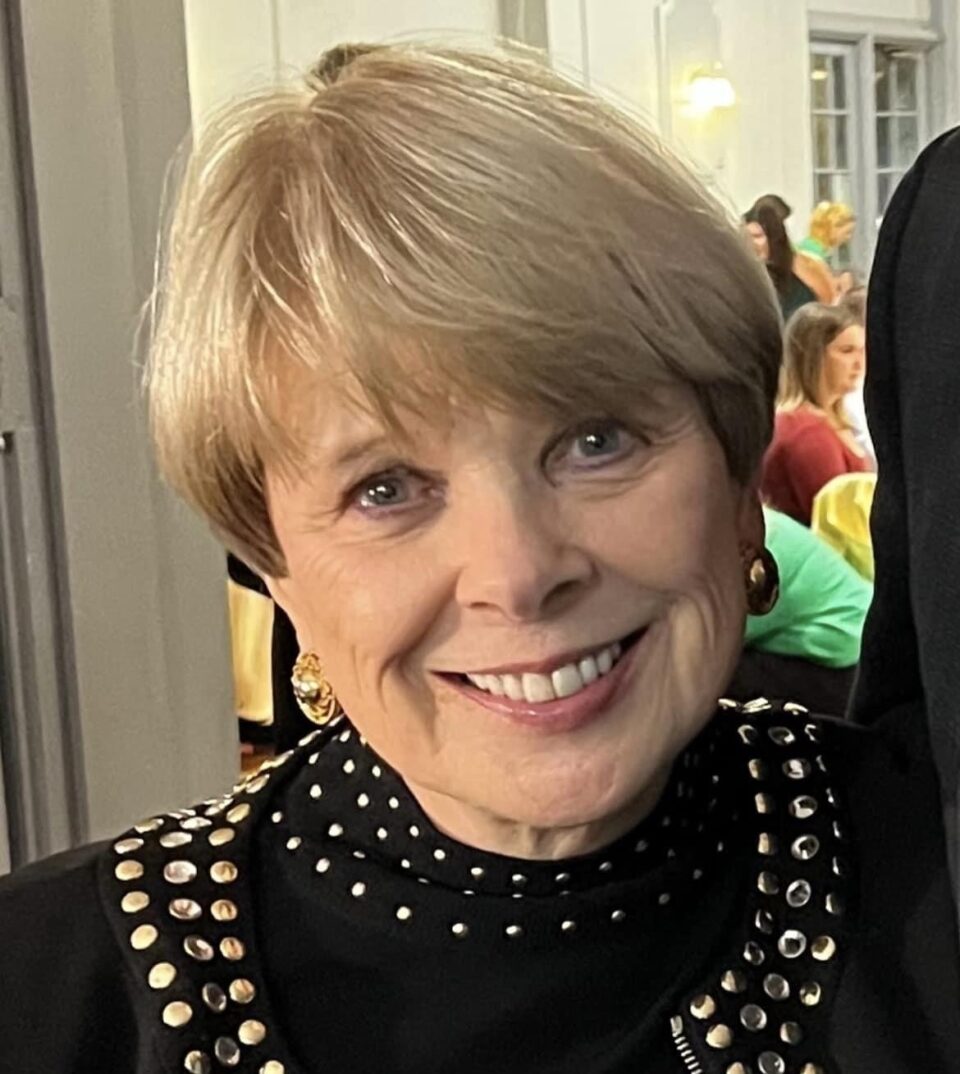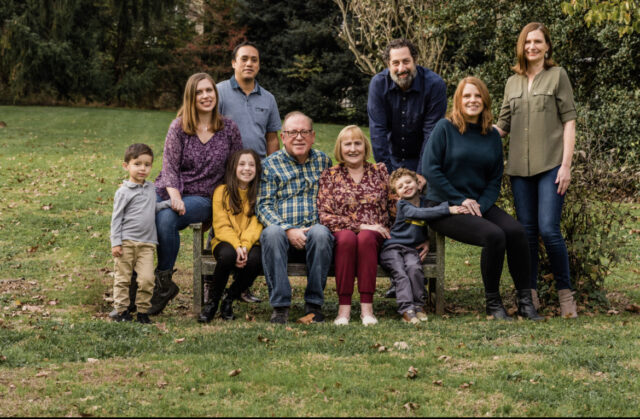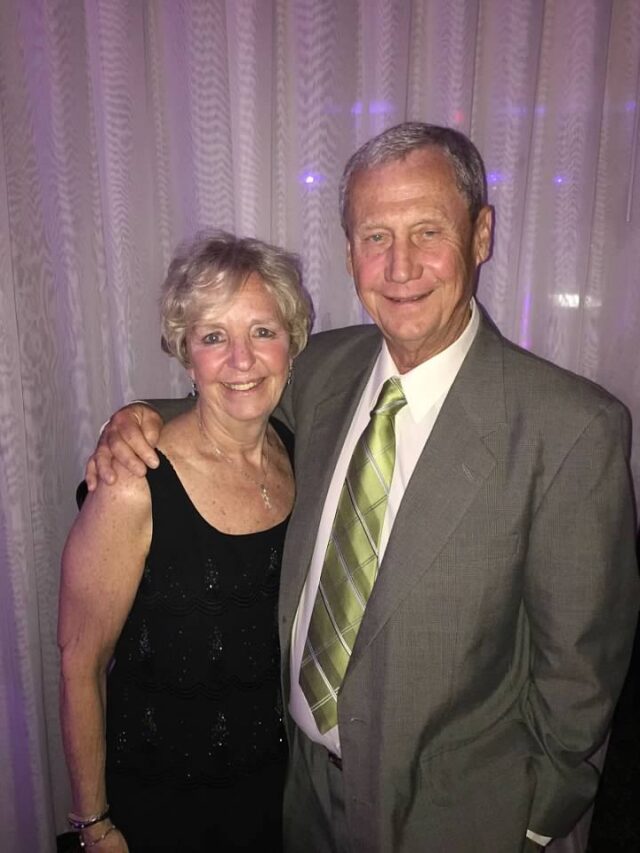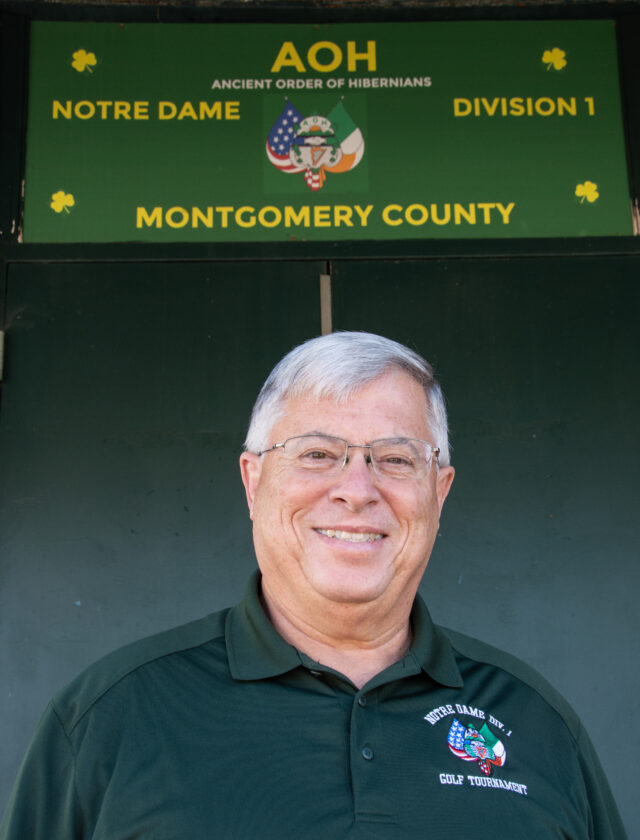By Lori Lander Murphy
The Commodore John Barry Arts & Cultural Center is far from the first organization to benefit from Pari Livermore’s generosity of spirit and commitment to fundraising, but the institution better known as the Irish Center may be the most appreciative. She, along with co-chair Kathy McGee Burns, organized last year’s wildly successful Top 100 Irish Women in Philadelphia event that raised much needed funds for the Center.
To the many in the Philadelphia Irish Community who have heard her name and seen her in action the last several years, Pari may still seem a bit of a mystery. If you didn’t know better, you’d swear she appeared out of nowhere, storied and pedigreed, a philanthropist and matchmaker from San Francisco’s golden world of glittering galas. And beyond a beautiful doubt, she is all of those things; more than that, however, her ties to the Irish and to Philadelphia are strong and true.
Born in Cincinnati, Ohio, to Phyllis Talbot and Edward Caldwell (whose ancestors hailed from County Antrim), Pari launched a career with TWA Airlines as an air hostess in an era when women were just beginning to be given opportunities to advance within the industry. She had left college (against her father’s advice) in order to be able to see the world. It was a decision she soon regretted, but she was in the right place at the right time; she was able to finish her degree thanks to TWA’s educational reimbursement program.
“I’m a very conscientious worker, and I’d been promoted to the role of flight attendant supervisor,” Pari explained. “Another woman and I were selected, and in addition to the reimbursement, they also gave us college credits for the things we’d done at TWA. I love to write and I had written a program that was called ‘Award of Excellence’ for the company. I got to go all around the country speaking about my program. I designed a pin, and all these wonderful things, which was probably my biggest success in my life at this point.” Thanks to all of her career accomplishments, Pari was able to graduate with a degree from NYU after just a year of courses.
But even as Pari was experiencing this success in her professional life, she was hit with the most devastating loss imaginable. Her young son was diagnosed with glioblastoma, an aggressive type of brain cancer, at age two and a half.
“Davey. I named him after my grandmother and mother’s maiden names. His name was Davidson Talbot. When he got sick, they told me, ‘If you want to spend some time with him, take him home. But he is not going to make it.’ It was the most painful thing.”
Davey passed away at age three, and his loss became a defining moment in Pari’s life.
“I had such tremendous, tremendous pain. I took time off of work and school and I could not do anything. I sat around looking at the wall and thinking ‘I’m going to die, too, I know I’m going to die, too, because how can I stand this?’ And what happened was, I read something that said the best way to keep from being sad is to do something for someone else. And I thought, that’s what I have to do. So I made a promise to God. I said, ‘Okay, God, I promise you if you could take this pain away from me then what I will do is I will help everybody else’s children and I will do what I can my whole life to help other people.’ And it happened. A couple of weeks later I realized I didn’t have the terrible pain anymore.”
Pari began volunteering and reading to children in the cancer hospital, but she eventually realized that her skills were better suited to helping in other ways.
“I asked myself, how can I best help, what is my skill. And my mom always used to say that I could sell a dead cat. And so I thought, well, that’s what I’ll do. I’ll go and raise money for cancer. And it turned out that I was very good at it. I like doing things for people, and it really is true that it makes you feel better. Every good thing that ever happened to me is because of that. It was a terrible sadness, but is shaped my life into something.”
The best of those good things turned out to be meeting her late husband, Putnam Livermore. After a move to San Francisco to earn her master’s degree at Berkeley, Pari’s fundraising, party-giving and matchmaking skills converged and changed her life. She successfully launched the Red & White Ball fundraising gala; the event landed in the San Francisco society pages as one of the Top 10 Parties of the Year and garnered its organizer a seat on the Board of the American Cancer Society. Putnam was also on the board, but seldom attended meetings. When their paths crossed at one of the fundraising events, Pari introduced herself to the charming and eligible bachelor as only Pari could: “Why don’t you ever come to any of our meetings and why aren’t you asking me to dance?”
Dancing, one of Pari’s passions, would lead her into the Irish community.
“We have a home in Glengarriff, in West Cork, and I was with my friend, Susie, in a trad bar,” shared Pari. “She did Irish dancing. I wanted to join in. And this woman said, ‘Well, do you know how to do the Clare Plain?’ I said ‘No.’ And she said, ‘Well, that’s what we’re doing tonight, and most of us have been doing this since we were four, so you won’t be able to dance.’ It looked like so much fun.”
It looked like so much fun, and she was so determined to learn the steps, that when Pari got home to San Francisco she went to the Irish Center there and did just that. But when Putnam got sick a few years later, the dancing stopped.
The couple were wed for almost 30 years before Putnam passed away in 2015. Their final years together were spent mostly at their house here in Philadelphia. They both loved Pennsylvania, and had friends and relatives in the area. Their Victorian home became a refuge for them, lovingly nicknamed The Green Curtain. Pari became his caretaker.
“When he was dying, we got some wonderful people to help me, wonderful ladies, because we had always said he wanted to remain at home, among his friends and the people he loved. My husband was sick for five years, and I was cooking for him during the day (because he’d always loved my cooking) and taking care of him at night. I wasn’t sleeping, and if I did sleep, I slept lightly in case he woke up.”
In those last months, the hospice people identified Pari as a caretaker who was at risk of becoming ill and breaking down herself. They told her she needed to do things she enjoyed every week. When she said she liked movies and Irish dancing, they insisted she take part in both those activities on a weekly basis.
“I hadn’t done any dancing since my husband’s illness, but I started going to the Irish Center. I went in and I didn’t know a soul. John Shields was so nice to me. And the dancers, they call themselves the Circle of Friends, they’re such wonderful people.
“After my husband died, I was living mostly in Philadelphia still. And I thought, I want to continue to help like I’ve been doing. But I wasn’t sure where to help or how to help.”
Enter Sean McMenamin, president of the Irish Center board. Pari had heard the Irish Center needed to raise some money, and Sean had learned that Pari was a fundraiser. She had also started attending meetings of the Donegal Society with a friend, and was becoming more involved in the community. She was ready to help but wasn’t sure that what worked in San Francisco would work in Philly. And she hadn’t been around long enough to establish the connections to pull off that kind of grand event.
But she knew she had to do something.
“One reason I knew I had to do it for the Irish Center is because of what happened when I went to the Donegal Ball. It was raining and the water was pouring down inside the ballroom. And then, on the same night, these men came and they wanted to have the money for the taxes. And they had to go and get Sean, and he said, ‘Well, I’ll pay it on Monday.’ And that’s when I knew.”
Her first few suggestions to Sean on how to raise the money fell a bit flat. Irish Philadelphia has a slightly different approach to fundraising than San Francisco.
“So, I started looking at the community and I started realizing there are an awful lot of people who work really hard around here. Especially the women. And I thought, that’s my answer! And then when I told Sean about the Top 100 Irish Women, he said, ‘Well, where are you going to get the women?’ I said that we’d have the organizations choose the women, and he liked that.”
He also put Pari in touch with Kathy McGee Burns, who was immediately on board with the idea. But many others weren’t.
“People said, “This is never going to work. Don’t even try this. You don’t know anybody, you know 10 women in the Donegal Association. We don’t raise that kind of money in Philadelphia. You’re just going to be a disaster. Don’t do it.’ When I said I wanted to raise in the $20,000’s, people were worried that I was going to be spending too much to get there. But I explained that we wouldn’t be spending any money on anything, none of my events spend anything, we get it all donated and underwritten.”
They also told Pari she’d never get the women to attend. The people that she was honoring are exactly the women who do everything they do selflessly and without any fanfare. But that was why Pari knew she had to pull it all off. And she credits her co-chair Kathy with being the perfect partner; their talents and connections complemented each other perfectly.
And as for the women?
“It was their special day. I wanted these women to know they were being thanked. That people appreciated what they were doing. Most of them said they didn’t need any appreciation. But I knew that wasn’t right. And it was very magical.
“All those people who said it was impossible, they should have been right. But Sean believed in me, Kathy believed in me and I believed in me.”
Pari is unsinkable. And she continues to put her talents to work for the Irish Community. She and Kathy started the Friends of Irish Women to support Philadelphia Irish women in crisis, her recent event Dinner and Dancing at the Crossroads raised money to carry on the work of the Duffy’s Cut Project and she is actively involved in the Irish Center Library and recording the oral histories of the community.




